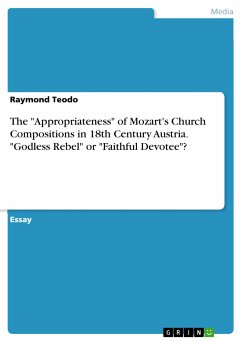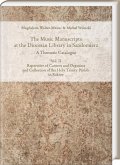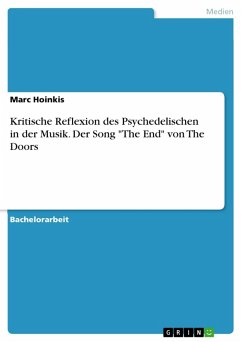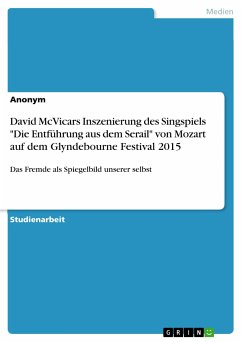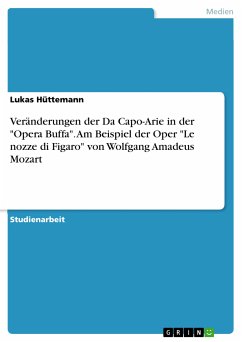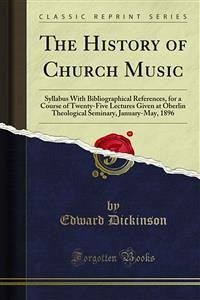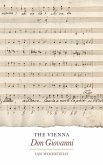Essay from the year 2010 in the subject Musicology - Music history - 18th century, grade: 1, University of Queensland (St. Lucia Campus), course: MUSC2500 - Classical Music, language: English, abstract: This essay deals with Mozart's Requiem (K626) and describes what aspects of the Requiem would have been deemed 'problematic' under the conventions that the church placed upon their music compositions, and explains how these 'problematic' elements actually complemented what effect church music was supposed to evoke for 18th Century Austrian parishioners. Mozart's Requiem has been the subject of debate in terms of its innovativeness and 'appropriateness' for 18th Century Church music, within the historical context in which it was composed. Some have argued that its failure to strictly adhere to the conventions that the Church placed upon Church music composition of the day, meant that Mozart was deliberately 'rebelling' against Church policy. However, a closer study of the historical context, in conjunction with particular events in the composer's life surrounding the development of this composition, indicate that Mozart was actually trying to support the Church's stance on providing music that is both moving, reverent and sacred, albeit taking some liberties that perhaps a lesser well-known and respected composer might not have been able to get away with.
Dieser Download kann aus rechtlichen Gründen nur mit Rechnungsadresse in A, B, BG, CY, CZ, D, DK, EW, E, FIN, F, GR, HR, H, IRL, I, LT, L, LR, M, NL, PL, P, R, S, SLO, SK ausgeliefert werden.

